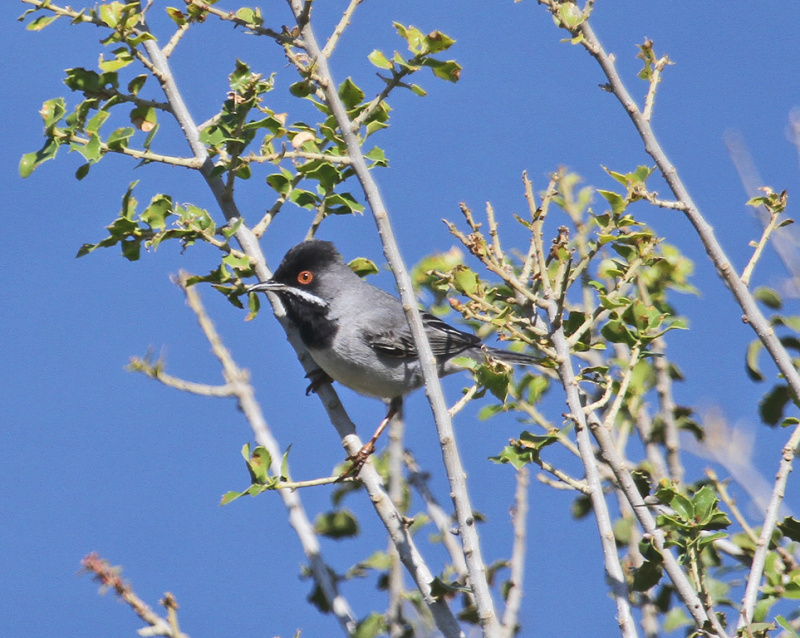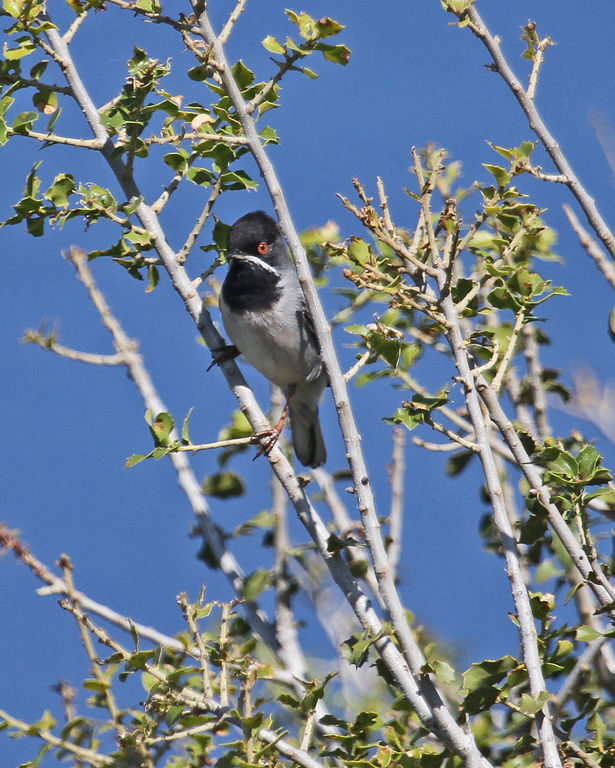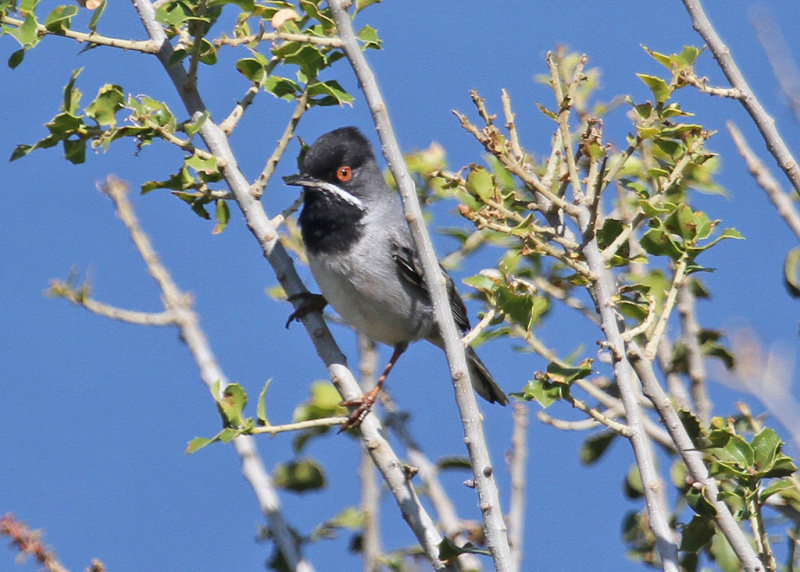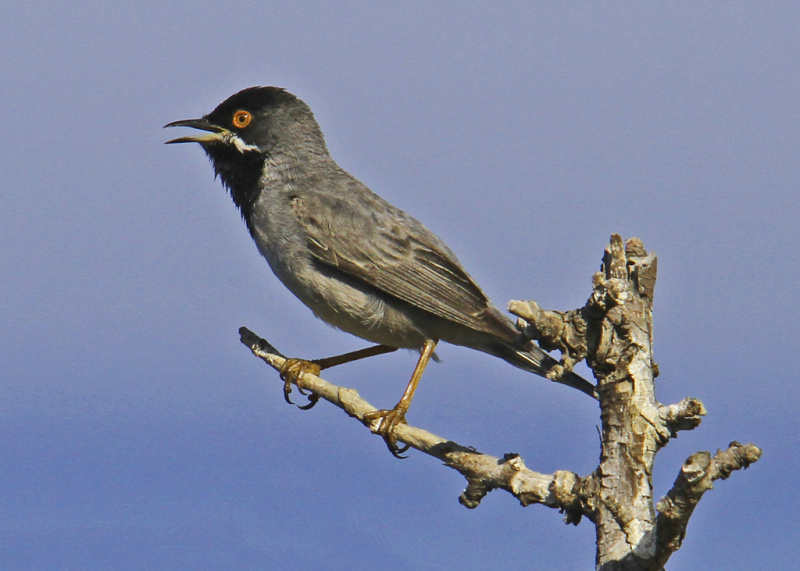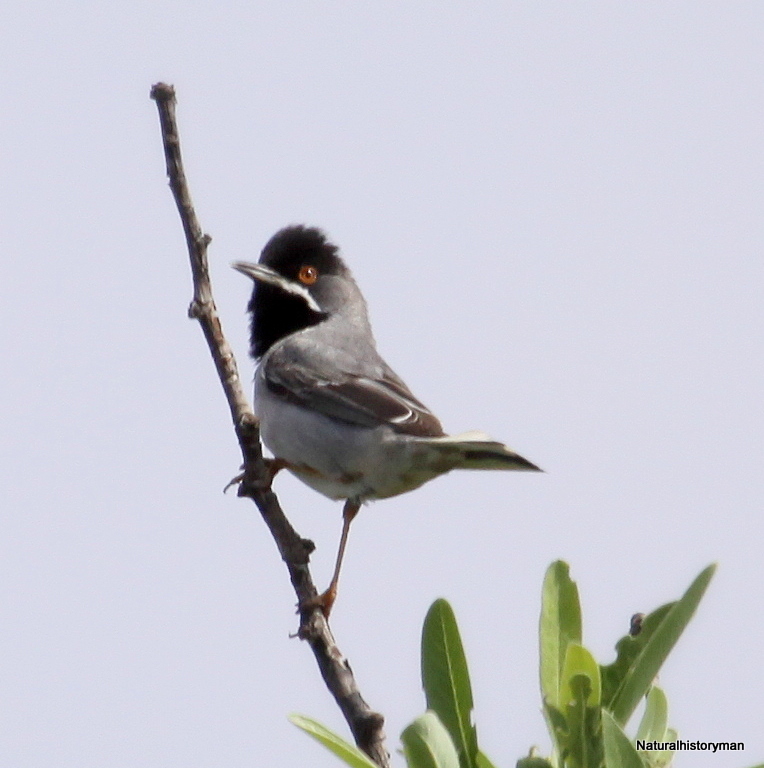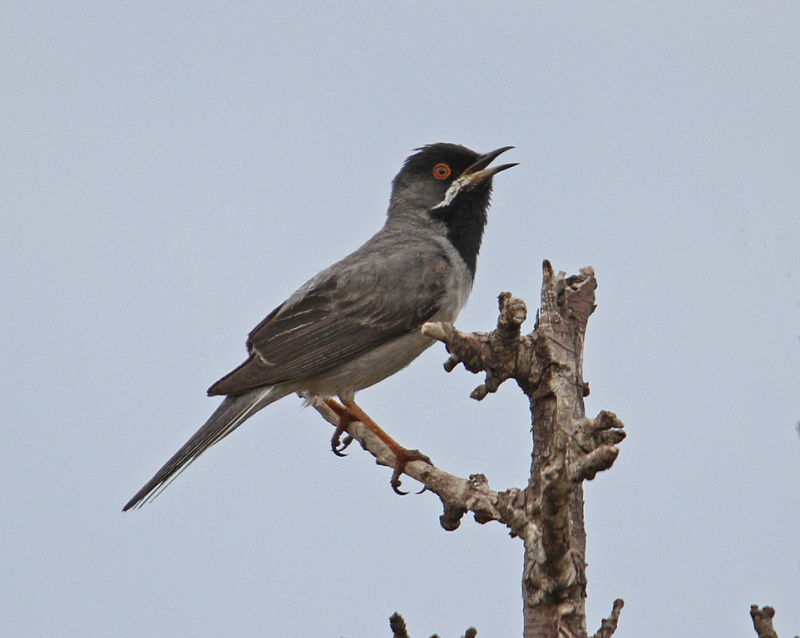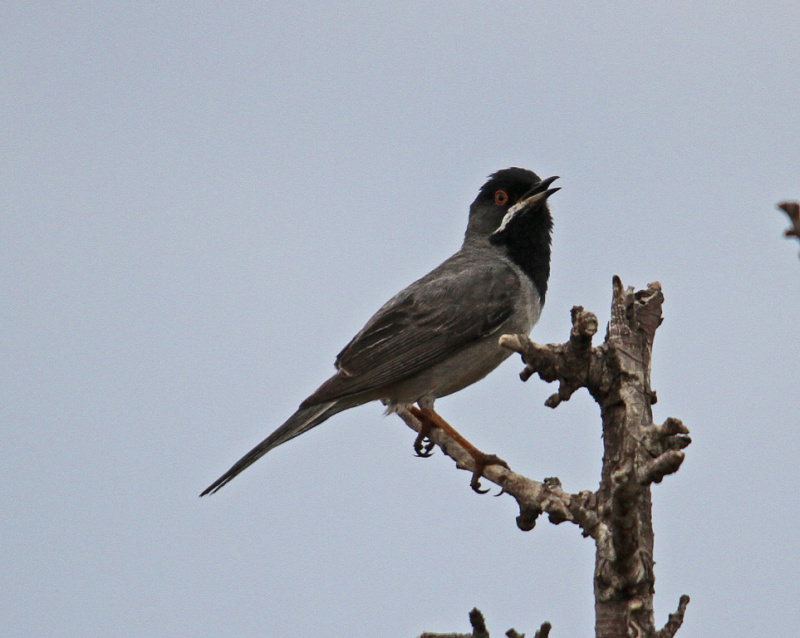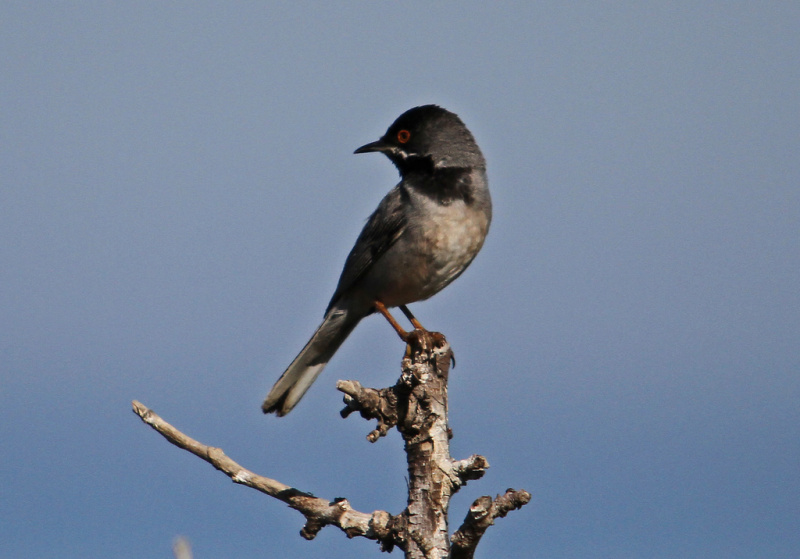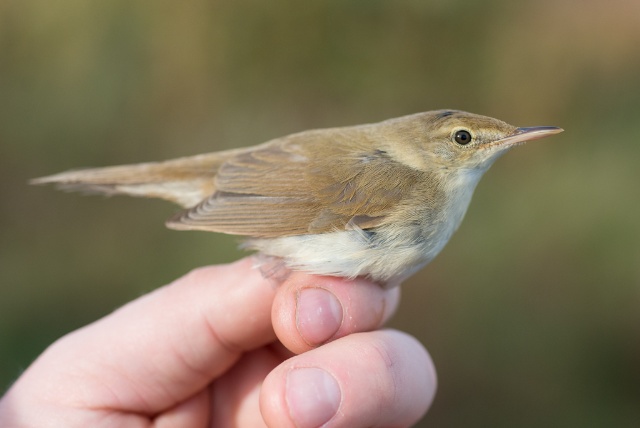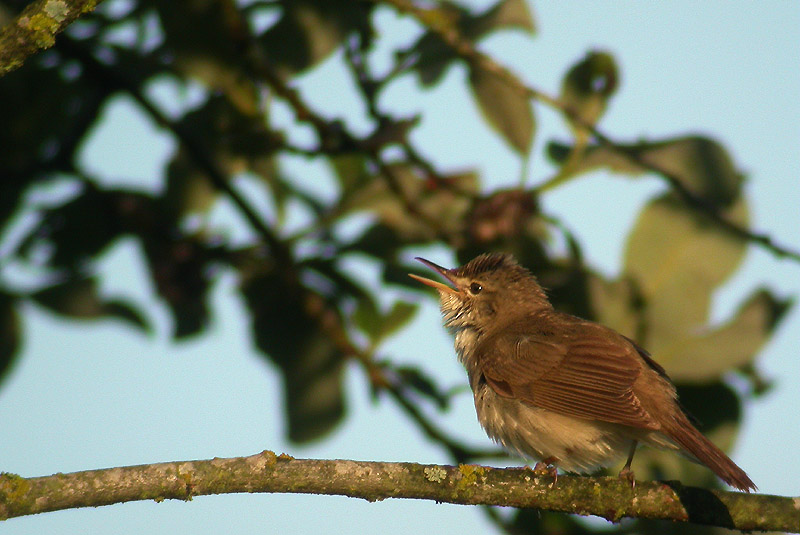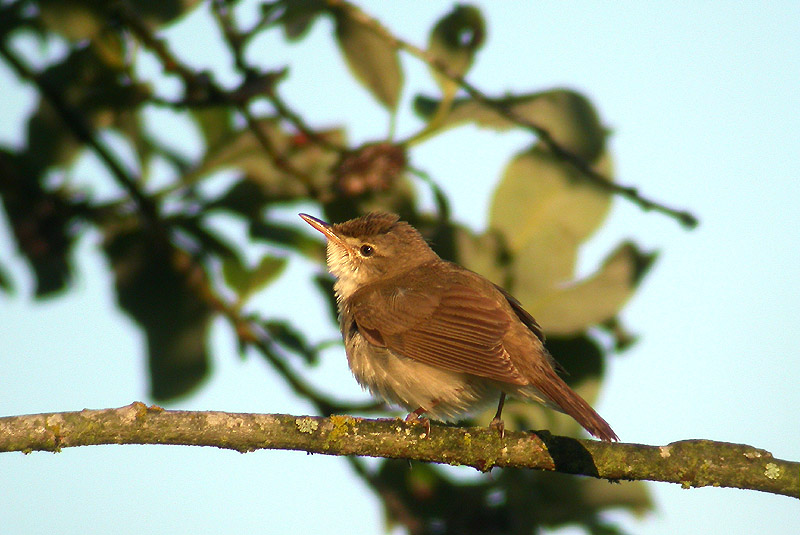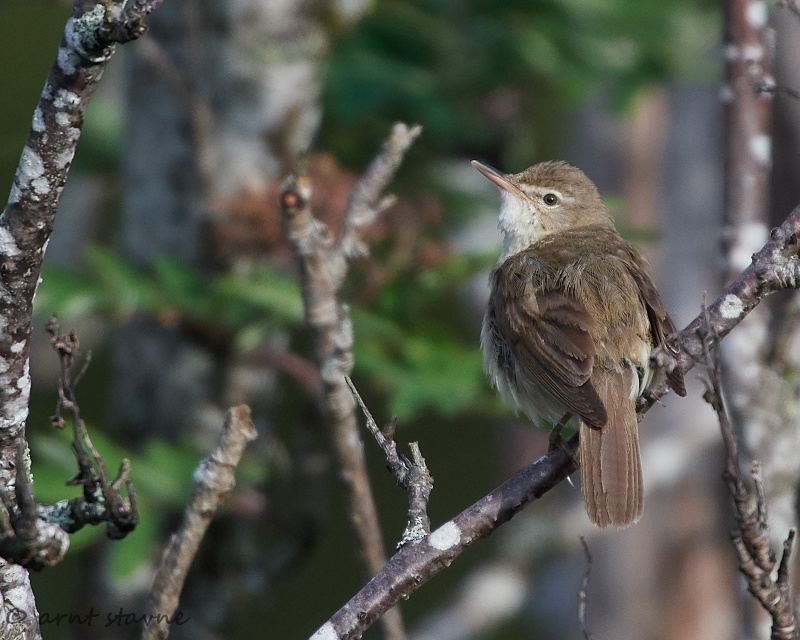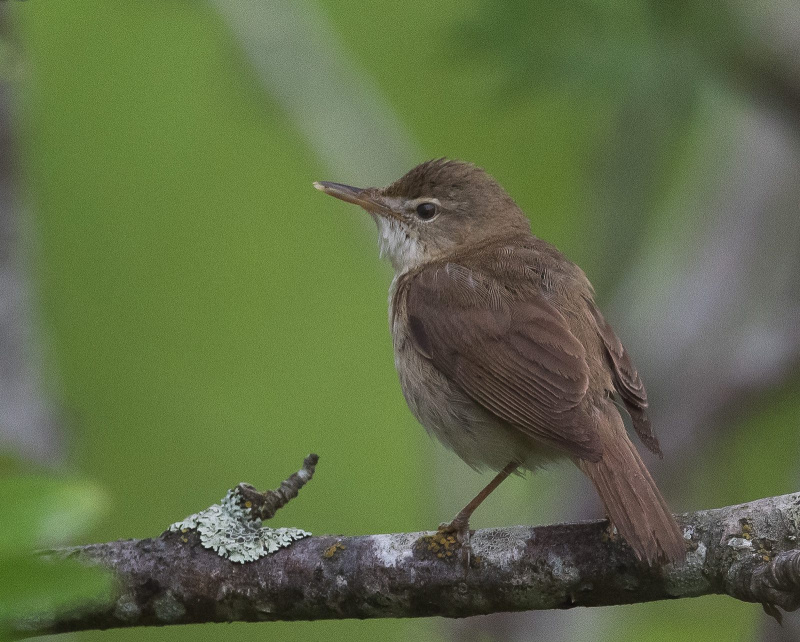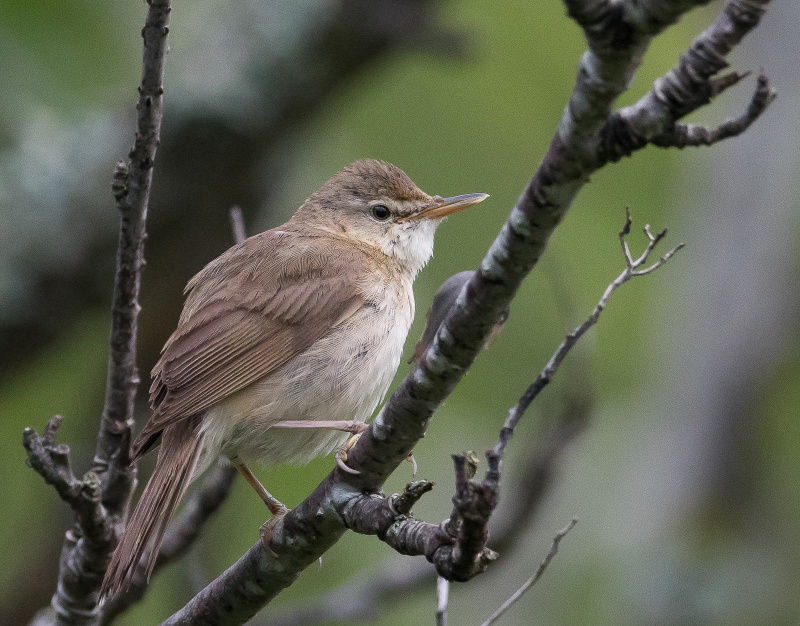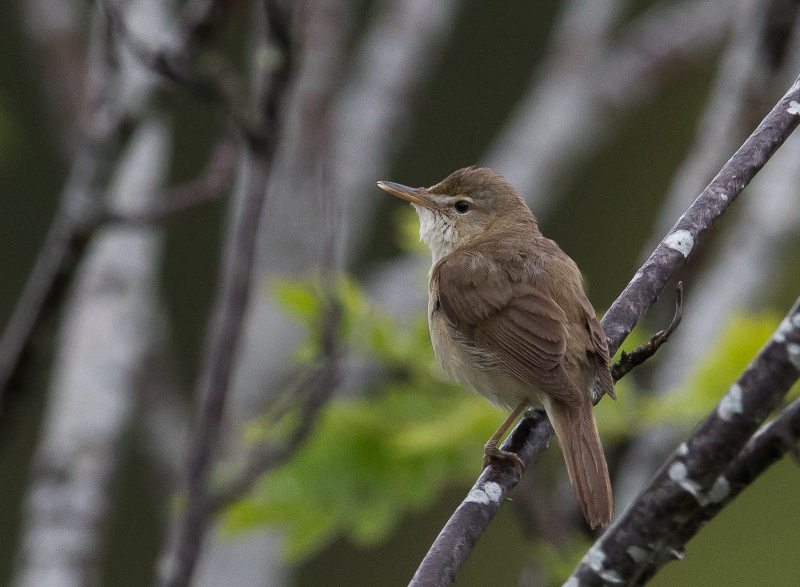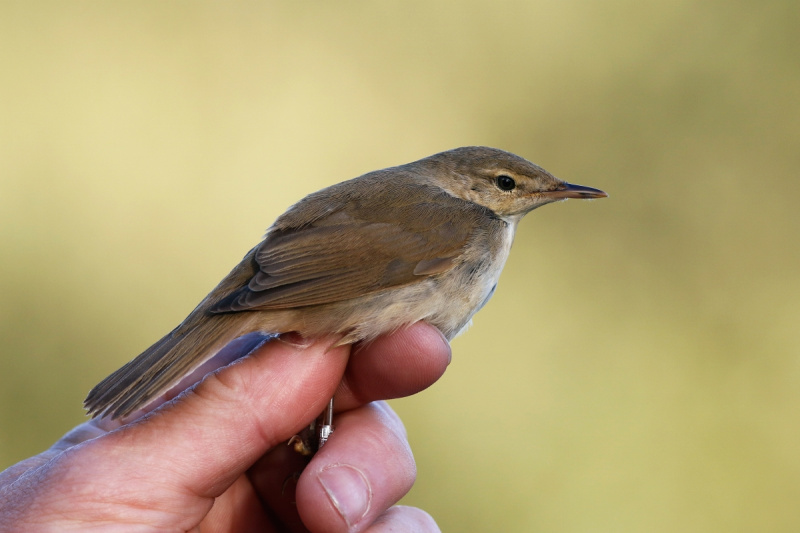Rüppell's Warbler (Curruca ruppeli)
Blyth's Reed Warbler (Acrocephalus dumetorum)
Adult male easily recognized by black throat and strong white moustache stripes. Female often also with black spotted throat which, together with the moustache stripe and pale chest/belly, makes it easy to distinguish from other Sylvia. Females and immatures with pure white throat may be confused with female Sardinian Warbler, but show darker front half of head, paler and purer coloured belly and flanks (lacking brownish tinge) and white fringes to greater coverts and tertials (less obvious in worn plumage). For all plumages look for curved culmen, pointed bill and longer and squarer tail than Sardinian Warbler. Build more similar to Whitethroat than Sardinian Warbler, and also less agile than smaller Sylvia.
Sound:Alarm call a rolling "trrrrrrrrt", similar to Spectacled Warbler, but less confluent (fewer pulses pr. sec.). Not as hard as corresponding call of Sardinian Warbler. Song a rapid mix of rolling alarm call type syllables, with interwoven single whistling notes. Rolling clearly softer than in Sardinian Warbler and often dominates the song with sequences of up to one second, giving it a very hectic feel. Each phrase rarely more than 2 seconds long. Some geographical variation exist and individuals with less rolling song easier to confuse with Sardinian and Cyprus Warbler.
Song (with extensive rolling), alarm, song:
Distribution:
Xeno-canto: map
Ecology:Birdlife ecology
Links:
Observation.org Latest observations
Image search Flickr NB! May give other species
CCCC-photo:Oscar en Jolanda Balm, Licence,Link.
CC-photo:Arie en Anneke Kolders, Licence,Link.
Similar to Reed Warbler but note very short primary projection, evenly coloured wings with dull tertials. Under tail-coverts almost white, with very little buff tinge. Legs overall darker than congeners. Immature birds with slightly paler legs and warmer upperparts and fringes to flight-feathers. Leaves a slimmer impression than Reed- and Marsh W., with flatter forehead and tapering bill. Posture often Sylvia-like with frequent cocking, flicking and fanning of tail.
Sound:Contact call a short and sharp Lesser Whitethroat-like "tek", different from Mars W. Alarm call a dry, rolling "krrrreet", often with a register break splitting into high register overtones. Song recalls Marsh Warbler in timbre but is generally diagnostic. Tempo slow and deliberate, pace recalling that of Song Thrush, with marked pauses. Typical articulate, arpeggio-like whistling motifs alternated by mimicry are often repeated many times. Daytime song less typical than normal song at night, with faster pace and less repetition.
Song:
Distribution:
Xeno-canto: map
Ecology:Birdlife ecology
Links:
Observation.org Latest observations
Image search Flickr NB! May give other species
CCSound recording:Recorded by Edmunds Racinskis

 English
English Albanian
Albanian
 Armenian
Armenian
 Bulgarian
Bulgarian
 Catalan
Catalan
 Croatian
Croatian
 Czech
Czech
 Danish
Danish
 Dutch
Dutch
 Finnish
Finnish
 French
French
 Georgian
Georgian
 German
German
 Greek
Greek
 Hungarian
Hungarian
 Italian
Italian
 Latvian
Latvian
 Lithuanian
Lithuanian
 Macedonian
Macedonian
 Norwegian
Norwegian
 Polish
Polish
 Portuguese
Portuguese
 Romanian
Romanian
 Russian
Russian
 Sami : Lule sami
Sami : Lule sami
 Sami : North sami
Sami : North sami
 Sami : South sami
Sami : South sami
 Scientific names
Scientific names
 Serbian
Serbian
 Spanish
Spanish
 Swedish
Swedish
 Ukrainian
Ukrainian

